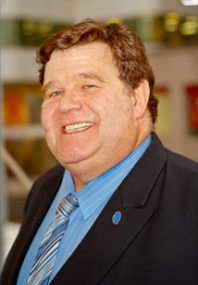By R A B (Tony) Snowsill.
 Historians and academics record their observations and findings for the understanding and enlightenment of future generations. We often hear how those who cannot learn from their mistakes or the mistakes of those before them, are destined to repeat them, but the words of historians go further than mere records of facts. They provide a culture of understanding, a momentum of society, and a context within which we can find guidance in the social, political and cultural life of our own societies and that of others.
Historians and academics record their observations and findings for the understanding and enlightenment of future generations. We often hear how those who cannot learn from their mistakes or the mistakes of those before them, are destined to repeat them, but the words of historians go further than mere records of facts. They provide a culture of understanding, a momentum of society, and a context within which we can find guidance in the social, political and cultural life of our own societies and that of others.
All writings are influenced by culture, education, religion and preconceived ideas. We cannot understand what we see without the tools that our culture gives us. An African might explain an event by reference to his/her culture as would a South American by reference to theirs. We would, for example, understand a new story from a foreign society by reference to the meanings of similar stories in our own culture but in fact, while the story might be similar the meaning and lesson, value or inference will be different from one culture to another.
Early historians who wrote about Fiji had to contend with many dialects and cultural meanings influenced by the Fijian outlook, customs and many other factors including the standing and rank of the persons informing them. At that time the Old Gods and spirit beliefs of Fiji did not live alone in the other world. They were an integral part of Fijian society without whose participation they would have ceased to exist. Because of these Old Gods, their powers, prerogatives and relationships within Fijian society, historians began to understand more about Fijian society and its customs.
These days most Fijians are devout Christians, primarily Methodist, Evangelistic and Roman Catholic. However, the Old Gods are still a part of Fijian society and its values. They participate, albeit subliminally, in numerous cultural forms, which may now be understood, in most part, within the context of the Christian culture to which they have been transferred.
As an example, Fijians will always see the custom of the Tabua as part of the wider culture of Fiji and its Gods before the Christian era. In former times a tabua pacified the gods and conciliated those to whom it was given. It still does so today, but it is also understood in the context of Christian love and forgiveness.
My paternal grandmother, Jessie Minnie Shave daughter of a colonizer “planter”, was born in 1882 at Na Vunidala (probably Vunidawa) on the remote upper reaches of the Waimanu River, in southern Viti Levu. After the death of her father Henry, mother, Minnie Martha Jane Shave, ran a small trading store near Vunidawa, on the Waimanu River. We cannot envisage how difficult life was in that place in the 1880s and particularly for a widow but it says something for the kindness and tolerance of Fijian society.
The area receives approximately 250 inches of rain per year with humidity rarely below 90%. When proceeding on foot, horse and bamboo raft one would have to contend with numerous fords over stony river shallows. Fijian villagers gave protection and one occasion is specifically recorded of the family being called to take refuge with them during an intertribal war. Minnie Shave collected her children and packed valuables including her prized sewing machine, which the villagers patiently carried back to the village inside an extremely heavy trunk.
Coincidentally, in the 1950s my father, Alan (Soot) Snowsill, was responsible for the oversight of much of the construction and maintenance of the road to Vunidawa and I travelled that road several times as a child not knowing of our family association with it. My uncle, Sydney Snowsill, worked for many years as an agriculturalist with the CSR Corporation.
I hope this book I’m preparing about the childhood and upbringing of my generation will entertain you (if this introduction) or has entertained you (if this is an epilogue) with some insight as to our “Fijian” outlook on life. You will never begin to understand we of Fiji without knowing from whence we came.
The kindness of Fijian society reflected in the custom of the “tabua” comes out in many attitudes. Fijians tend to forget injuries and remember kindnesses. Meanness is the greatest sin. Fijians are understanding and generous. They have a large and generous spirit. My generation was fortunate to be born and raised in Fiji and have absorbed much Fijian culture and traditions.
I miss our beautiful country, our affinity and the confidence we had in people and in life.
Fiji is struggling with all the evils and good things of the twenty-first century, but like any other country in the world Fiji can never go back. Let us hope it will take with it the great things of its cultural heritage, which will temper success with a uniquely Fijian humanity and confidence in life.
Tony Snowsill, Sydney, 2008
– – – – – – – – – – – – – – – – – – – – – – – – – – – – – –
